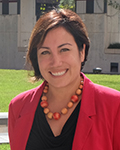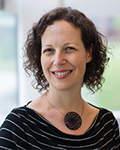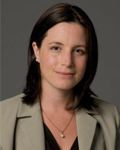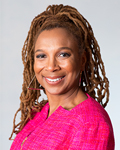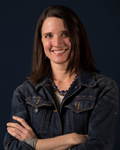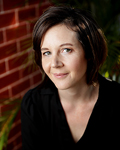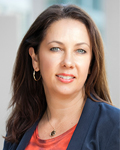This event took place on January 23 - 24, 2019 and is no longer available on-demand.
We all have learned stereotypes that unconsciously influence how we see ourselves and others. Like perceptual illusions, some biases persist even once we are aware of them. Implicit bias impacts diverse scientific communities, ultimately limiting the potential of neuroscientists and inhibiting discovery.
In this virtual conference, organized by Ione Fine (University of Washington), Alicia Izquierdo (UCLA), and Yael Niv (Princeton University), you will learn practical strategies for recognizing and overcoming implicit bias and increasing diversity in your labs and institutions, as well as the neuroscience field at large.
From 15 experts, including scientists, lawyers, business and philosophy professors, book authors, and NPR podcast hosts, you will learn about and gain strategies to address:
- Implicit bias in academia: why it’s there and what we can do about it.
- Social dynamics.
- Mentoring in light of implicit biases.
- Recruitment, selection, and evaluation.
- Negotiation.
- Diversifying the pipeline.
Wednesday, January 23, 2019
Click on each session title to reveal its description.
Session 1: Keynote Lecture – Implicit Bias in Academia
Speakers: Mahzarin Banaji
Time: 11:00 a.m. – 11:45 a.m. EST
Neuroscientists study how the brain works, often focusing on one brain in isolation. However, much of our unconscious thinking and feeling unfold in social group contexts, influencing decisions about people’s worth, goodness, and competence. In this talk, Professor Mahzarin Banaji, author of the bestseller, “Blindspot: Hidden Biases of Good People,” will address the question of why well-intentioned people behave in ways that deviate from their own values and principles, and how this state of affairs compromises their decisions in a social context. The purpose of this keynote lecture is to reveal mental blind spots that can compromise professional and personal decisions if they are left unattended, and to begin a conversation about what might be done to allows us to lead the examined life to which we aspire.
Session 2: Creating Opportunities for Everyone
Speakers: Kimberlé Crenshaw, Yael Niv
Time: 12:00 p.m. – 1:00 p.m. EST
This session will outline the ways in which we can better appreciate different social identities and facilitate their intersection in the laboratory and in the workplace (Crenshaw), and (re)define who gets invited/included as an expert (Niv).
Session 3: Judgment Biases – Where Do They Come From? What Can We Do About Them?
Speakers: Anne Churchland, Andrei Cimpian, Ione Fine
Time: 1:15 p.m. – 2:25 p.m. EST
We develop implicit bias as young children. In this session, we will discuss how our stereotypes develop and how they influence how we see ourselves and others. These biases permeate academia, influencing what choices we make, and whom we select as employees and leaders. There will be a discussion of the many ways to minimize the effects of implicit bias on assessment, recruitment, and selection. Best practices will be discussed, including the need to think critically about evaluation criteria and techniques for “widening the pool” of individuals.
Session 4: Wrap-Up – What We Heard and Q&A
Speakers: Ione Fine, Jeannie Yandel, Eula Scott Bynoe
Time: 2:30 p.m. – 3:30 p.m. EST
This will be an interactive session in which conference attendees can share what they have learned and plans for implementing change. The conversation will be moderated by the creators of the podcast, “Battle Tactics for Your Sexist Workplace”: Jeannie Yandel, special projects editor at KUOW, and Eula Scott Bynoe, HuffPost contributor, doula, podcaster, and full-time black woman.
Thursday, January 24, 2019
Click on each session title to reveal its description.
Session 1: Keynote Lecture – Implicit Bias in Neuroscience and Beyond
Speakers: Cordelia Fine
Time: 11:00 a.m. – 11:30 a.m. EST
Sex effects in the brain are important to study and understand, but implicit gender assumptions can have a detrimental effect on research: from the questions asked (and not asked), to the interpretation of findings. This talk will discuss some common pitfalls and review psychological findings regarding belief in categorical, fixed, and deeply biologically-grounded behavioral differences between the sexes.
Session 2: Diversifying the Pipeline
Speakers: Ketema Paul, Carmen Maldonado-Vlaar, Daryl Davies
Time: 11:45 a.m. – 12:45 p.m. EST
This panel will highlight summer (Paul) and pipeline programs’ (Davies) purposes and successes in enhancing diversity in neuroscience, as well as the best practices in evaluating candidates, ultimately making the search for excellence in neuroscience trainees more inclusive. This session will also identify what we should and should not be including in our metrics of evaluation to avoid bias (Maldonado-Vlaar).
Session 3: Negotiation
Speakers: Andrea Schneider, Laura Kray
Time: 1:00 p.m. – 2:15 p.m. EST
We negotiate throughout our professional and personal lives — with our superiors, colleagues, trainees, and friends and families. This session will focus on different negotiation styles, which is good in what situation, and how do we negotiate for success while avoiding the pitfalls of implicit biases (Schneider), as well as negotiation from a power differential, especially when you are in a low power position, and tips for making sure one remains true to high ethical standards in negotiation (Kray). Ahead of this session on January 24, participate in the Dynamic Negotiating Approach Diagnostic, a new tool to measure responses to conflict.
Session 4: Wrap-Up – What We Heard and Q&A
Speakers: Cordelia Fine, Ione Fine, Jeannie Yandel, Eula Scott Bynoe
Time: 2:20 p.m. – 3:30 p.m. EST
This will be an interactive session in which conference attendees can share what they have learned and plans for implementing change. The conversation will be moderated by the creators of the podcast, “Battle Tactics for Your Sexist Workplace”: Jeannie Yandel, special projects editor at KUOW, and Eula Scott Bynoe, HuffPost contributor, doula, podcaster, and full-time black woman.
